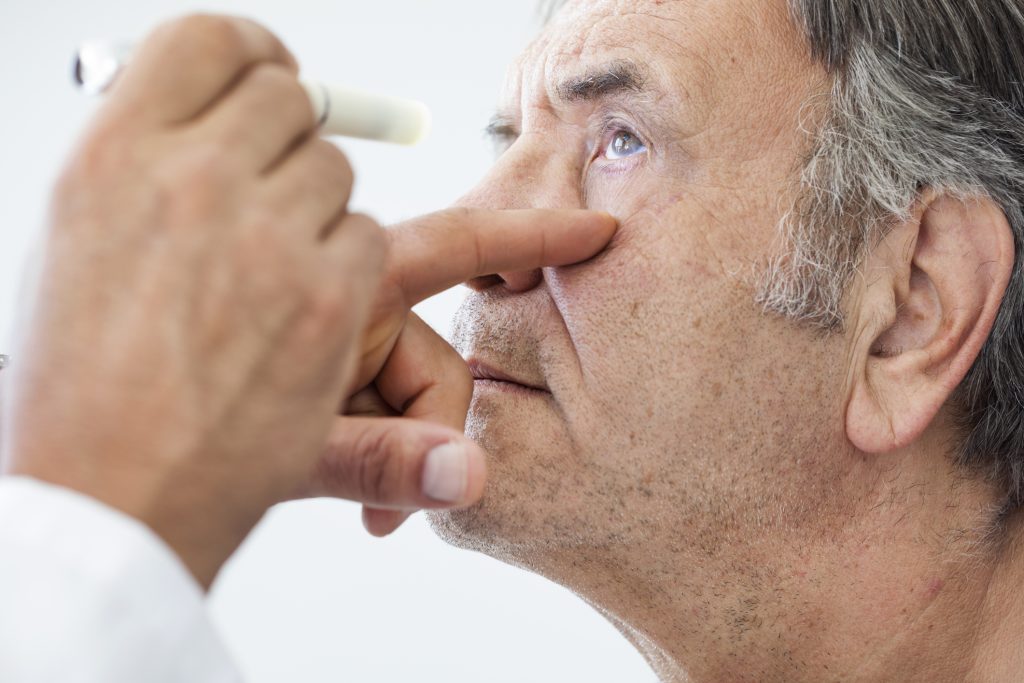3 Ways You Can Lower Your Risk for Cataracts

Did you know that by age 75, about half of all Americans will have cataracts? While this may seem like a shocking statistic, there are many simple steps you can take each day to lower your risk for developing cataracts.
To learn more about how you can lower your risk of cataracts, read on for the top everyday tips from an optometrist in Tampa.
1. Protect Your Eyes From the Sun
One of the most important steps to take on an everyday basis is protecting your eyes from sunlight.
Spending time in the sun can often expose our eyes to harmful ultraviolet light rays.
Ultraviolet light is a type of electromagnetic radiation that is responsible for sunburns, and can damage living cell tissue. Exposure to too much ultraviolet light can even break down chemical bonds, a process also known as ionization.
This is particularly harmful to the eyes.
Whether you’re spending a day at the beach or driving in your car, it’s crucial to protect your eyes with sunglasses. Prescription sunglasses and polarized lenses provide the best vision and sun protection possible. At Florida Eye Center, our options for sunglasses are up to date with the latest style trends and protection technology.
2. Improve Your Diet
Another way to lower your risk for developing cataracts is to eat foods that benefit your eye health. Just as the heart relies on your arteries to function, your eyes also rely on tiny arteries. Eating foods rich in nutrients and low in fat can help keep your eyes healthy.
You’ve likely heard that carrots can benefit your eyesight, but did you know that many other orange fruits and vegetables can, too? Sweet potatoes, cantaloupes, and other orange foods high in vitamin A can keep your eyes from becoming too dry, as well as aid in the processing of light rays.
Another food that you should include in your diet is fish with omega-3 fatty acid. Some of these fish include salmon, tuna, halibut, and more. The omega-3 fatty acids found in these fish are said to help prevent you from developing many different kinds of eye diseases.
Prioritizing foods like fruits, leafy green vegetables, and healthy fish can not only make for a delicious diet, but also better eyesight and a lower risk of developing cataracts later in life.
3. Visit Your Optometrist Regularly
Another top tip to lower your risk of developing cataracts is to schedule regular checkups with an optometrist. Keeping up to date with routine eye care and examinations is key to ensuring that any potential issues are taken care of quickly.
If there are signs of cataracts, our team can also conduct safe, successful cataract treatment in Tampa to improve your eye health. With our latest technology, cataract patients can be sure that they’ll have the best chance to live free of glasses for everyday activities.
Schedule an Appointment With an Optometrist in Tampa
If you’re looking to lower your risk for developing cataracts and other eye problems, start by scheduling an appointment with an optometrist today. Contact us at the Florida Eye Center to request an appointment with our team of doctors dedicated to your eye health.
Disclaimer: The contents of this website are for general educational purposes only. All content and media on the Florida Eye Center website does not constitute professional medical advice nor is the information intended to replace the services provided by the medical professionals at Florida Eye Center or other qualified medical professionals. If you believe you are having a medical emergency, call 911 immediately.
The content, views, and opinions communicated on this website do not represent the views of Florida Eye Center. Reliance on any information provided by this website is solely at your own risk. Although this website contains links to other medical websites, this is strictly for informational purposes. Florida Eye Center is not responsible nor do they approve of the content featured on any third party linked websites referenced on this website.
Additional Resources
To request an appointment, please access the form below or contact our office at (813) 972-4444. While we do our best to accommodate your request, appointment requests made through our website are not guaranteed until confirmed by our office. If this is an emergency, please call 911.

